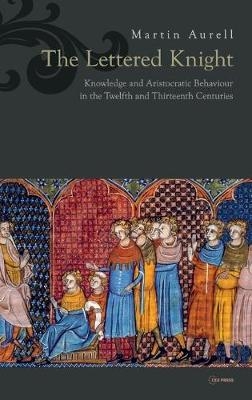
The Lettered Knight
Central European University Press (Verlag)
978-963-386-105-9 (ISBN)
Martin Aurell is Professor of Medieval History at the University of Poitiers, France
Introduction The Renaissance of the twelfth century Scholasticism, reading and writing 'Literature' and orality The lettered and the unlettered The cleric and the knight Courtesy and civilisation of mores Knighthood and literacy Schooling and teaching children to read and write Sons faced with the choice of taking up arms or the calling of the cloister49 The first teachers: family, private tutors, and courtly clerics In the monastic, cathedral and parish schools From cloister to secular life Italian precocity and pragmatic knowledge Methods of learning, new programs and the spread of writing in the vernacular The Latin of the knights The Latin skills of the Anglo-Norman knights The Italian educated nobility Semi literate laymen Book collectors and patrons Chivalry and literary creation The court and literary social life Castles transformed into palaces Halls, rooms and gardens A literary setting Literature intended for performance Ladies holding salon Dancing, jeux partis and dialogues Minstrels and professional performers Wide ranging skills Dissemination of political songs Rivalry with the knights and clerics A more positive image Songs: a preference for the brief genre The Troubadours on love and war Northern trouveres and Germanic Minnesanger Romances, sagas and other fictional genres: a rare form of writing The Grail, love and war in French The German ministerials Italy, compilers and encyclopaedists Snorri Sturluson's sagas Impiety or religiosity? History and memory: telling the Crusade Overseas adventure in oc and oil The Catalan-Italian wars around the Mediterranean Learned women The education of girls Preceptors and schools Convent education Disparate educational levels Women readers The indispensable Psalter Receiving love poems and letters Women writers Women epistolarians Marie de France Trobairitz, hagiographers and visionaries Superiority of feminine knowledge? The 'Clergy' and the civilizing of knightly ways War and the codifying of violence The moral of the story Rebuking greed, violence and vanity Pillaging and murder Hunting, tournaments and games The chivalrous ideal Warring under the king for peace and justice The knighthood and dubbing Sparing human lives The crusade as armed pilgrimage The paradox of the soldier monks The internalisation of persuasive arguments? Manners: mastering movement and speech Courteous clerics Instructional books on civility Clothing and attire Cleanliness and elegance Shame and immodesty Self-control in gestures Table manners The art of pleasant conversation Love: refinement and self-control The patient, enduring and meek lover Perfecting oneself through love Classical knowledge and courtly love The debate on knights and clerks in love Religion: the warrior's piety The lettered knights and theological thought Courtliness and piety Mass attendance and the dangers of Pharisaism Meditating at church, invoking the Holy Virgin, and other forms of devotion359 Love for fellow-men, alms and voluntary poverty Confession and penance The knight's martyrdom Individuation and nobility of the soul Conclusion Sources and bibliography Sources Bibliography
| Erscheint lt. Verlag | 10.3.2017 |
|---|---|
| Verlagsort | Budapest |
| Sprache | englisch |
| Maße | 159 x 234 mm |
| Gewicht | 745 g |
| Themenwelt | Geschichte ► Allgemeine Geschichte ► Mittelalter |
| Geisteswissenschaften ► Geschichte ► Regional- / Ländergeschichte | |
| Sozialwissenschaften ► Ethnologie | |
| Sozialwissenschaften ► Soziologie ► Makrosoziologie | |
| ISBN-10 | 963-386-105-5 / 9633861055 |
| ISBN-13 | 978-963-386-105-9 / 9789633861059 |
| Zustand | Neuware |
| Haben Sie eine Frage zum Produkt? |
aus dem Bereich


